Retinol has long held a prominent place in dermatological practice, revered not only for its powerful anti-aging properties but also for its ability to manage a variety of acne-related concerns. Among these, blackheads—a common, persistent form of acne—have received particular attention. As the demand for evidence-based skin care continues to rise, many individuals are asking, “Does retinol help with blackheads?” The answer, grounded in dermatological science and clinical experience, is nuanced yet promising. In this article, we explore how dermatologists use retinol for blackheads, the mechanisms behind its action, the safety considerations involved, and what research reveals about its long-term effectiveness.
You may also like: How to Choose Skin Care for Fine Lines: Evidence-Based Tips for Healthier, Younger-Looking Skin
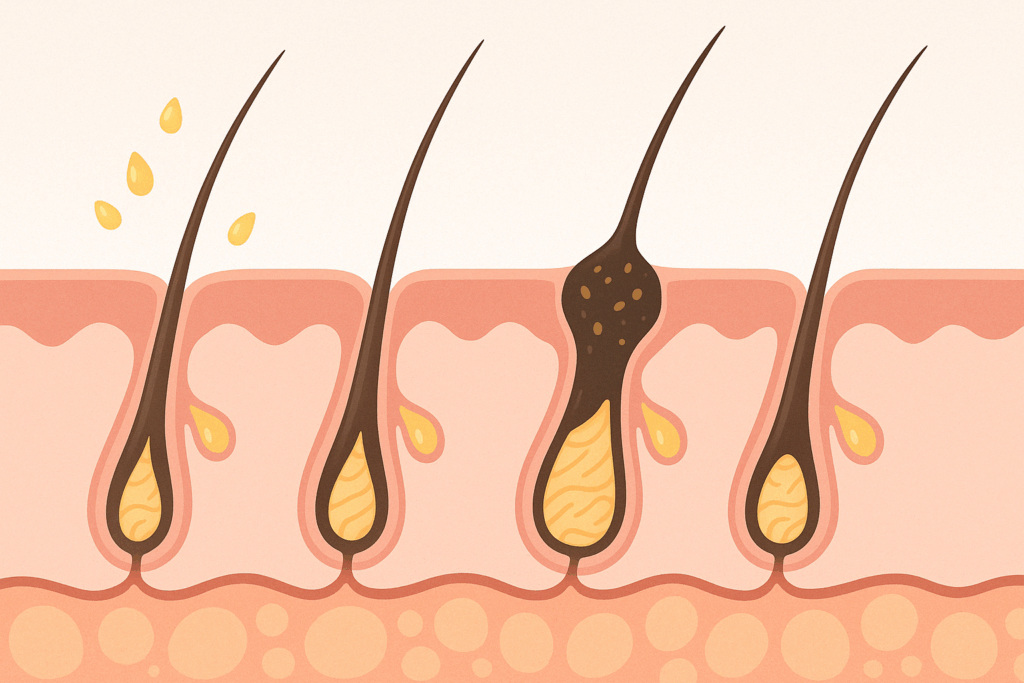
Understanding Blackheads: A Dermatological Perspective
To appreciate how retinol targets blackheads, it is essential to understand the pathophysiology behind these blemishes. Blackheads, medically known as open comedones, are a type of non-inflammatory acne lesion. They occur when hair follicles become clogged with excess sebum, dead skin cells, and other debris. Unlike whiteheads, which are closed at the surface, blackheads remain open, allowing the contents to oxidize and turn dark in color.
This process may appear superficial, but it reflects deeper dysfunctions within the skin’s sebaceous architecture. Factors such as hormonal fluctuations, poor exfoliation, and impaired skin turnover contribute to the development of blackheads. Moreover, certain skincare products and environmental pollutants can exacerbate their formation. Thus, effective treatment requires more than superficial cleansing; it demands a targeted intervention that addresses the cellular mechanisms of comedogenesis. This is precisely where retinol demonstrates its value.
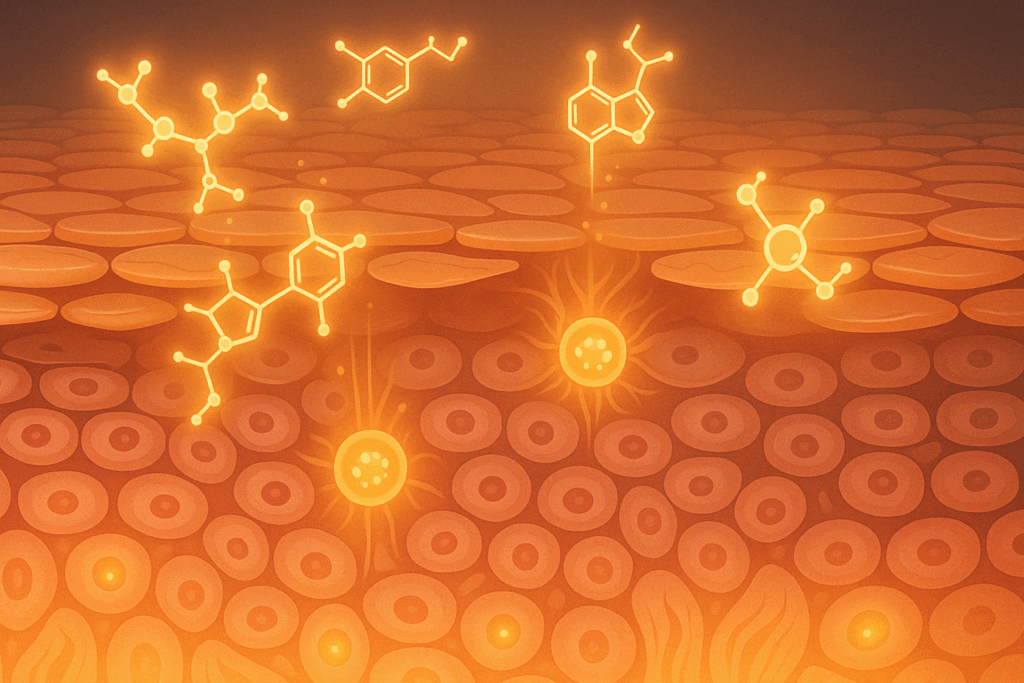
How Retinol Works at the Cellular Level
Retinol, a derivative of vitamin A, functions as a precursor to retinoic acid—the active form that binds to nuclear receptors in skin cells. Once absorbed, it initiates a cascade of changes in gene expression that regulate cell proliferation, differentiation, and turnover. For patients struggling with blackheads, this means enhanced desquamation, or the natural shedding of skin cells, which helps to prevent the buildup of keratin and sebum within pores.
Moreover, retinol has been shown to normalize the desmosomal attachments between keratinocytes, promoting a more uniform exfoliation process. This mechanism is critical in preventing the hyperkeratinization that underlies blackhead formation. Additionally, retinol reduces sebum production and exerts mild anti-inflammatory effects, both of which can further alleviate comedonal acne.
What sets retinol apart from many over-the-counter treatments is its ability to work deep within the follicular canal. Unlike salicylic acid, which mainly clears surface debris, retinol targets the origin of blackhead formation, offering a more comprehensive and preventive approach. As such, the use of retinol for blackheads is not merely anecdotal—it is grounded in a molecular understanding of acne pathogenesis.
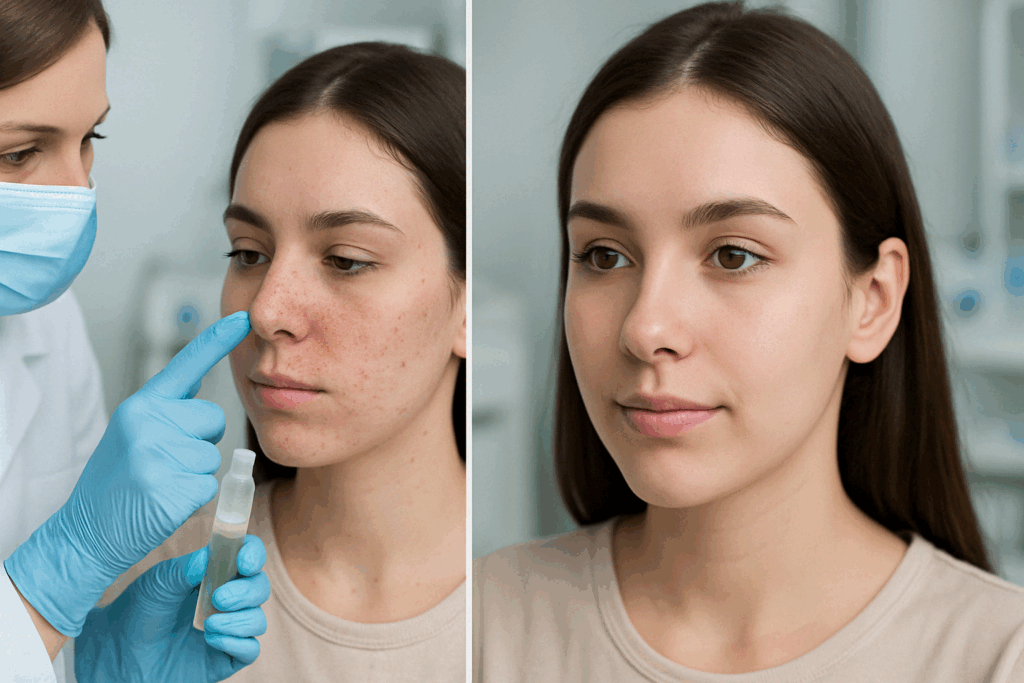
Clinical Evidence Supporting Retinol for Blackheads
A growing body of dermatological research supports the use of retinol in the treatment of blackheads. Several clinical trials have demonstrated that both over-the-counter retinol and prescription-strength retinoids, such as tretinoin and adapalene, significantly reduce the number and severity of comedones over time. For instance, a landmark study published in the Journal of the American Academy of Dermatology found that nightly application of 0.025% tretinoin gel over 12 weeks led to a statistically significant reduction in open comedones among adolescent patients.
Other research has highlighted retinol’s efficacy in combination therapies. When used alongside chemical exfoliants like glycolic acid or benzoyl peroxide, retinol enhances penetration and synergistically improves blackhead clearance. This has prompted many dermatologists to recommend integrated skincare regimens that utilize retinol as a cornerstone treatment.
Furthermore, newer formulations of retinol have been engineered to minimize irritation while preserving efficacy. These advances have expanded its use among individuals with sensitive skin or those who previously experienced adverse reactions to retinoids. Thus, modern clinical practice reflects an evolving and increasingly nuanced application of retinol for blackheads, informed by both empirical evidence and patient-centered considerations.
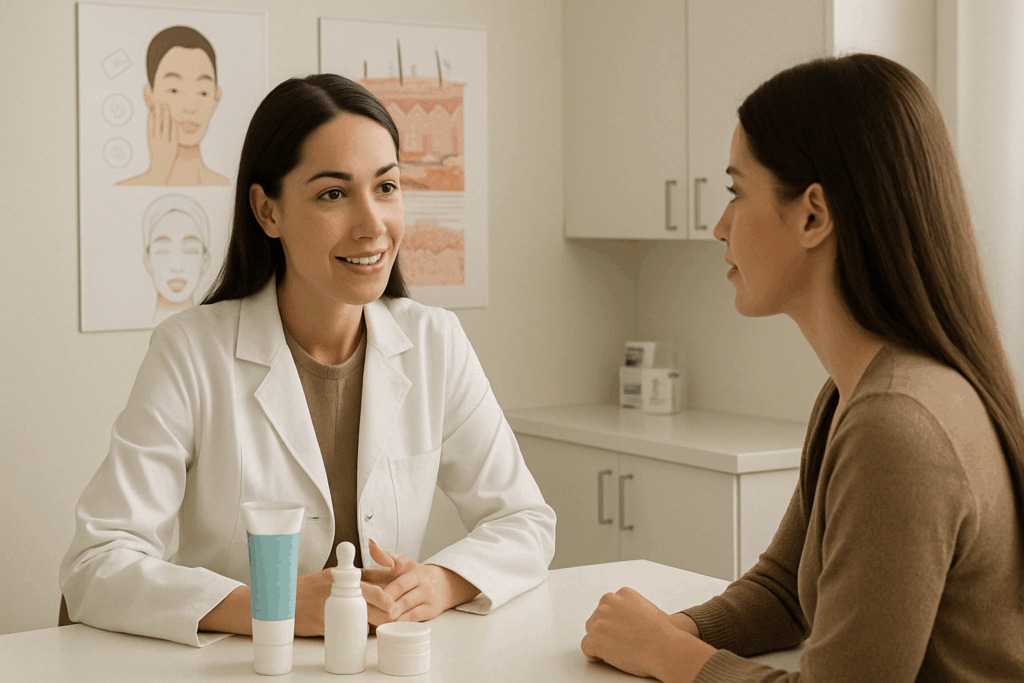
How Dermatologists Prescribe and Recommend Retinol
Dermatologists take a strategic and individualized approach when prescribing retinol for blackheads. Factors such as skin type, acne severity, patient age, and previous treatment history are considered in determining the appropriate strength and formulation. For patients new to retinoids, dermatologists often recommend starting with low concentrations of over-the-counter retinol—typically ranging from 0.1% to 0.5%—before progressing to prescription-strength options if needed.
To minimize irritation and ensure tolerability, many dermatologists advise patients to apply retinol every other night initially, gradually increasing frequency as the skin acclimates. This practice, known as retinization, allows for the benefits of retinol to be realized without triggering significant dryness, redness, or peeling.
In addition to topical application, dermatologists emphasize the importance of complementary skincare practices. These include using a gentle cleanser, applying non-comedogenic moisturizers, and incorporating broad-spectrum sunscreen into the daily routine. Retinol increases skin photosensitivity, making UV protection essential for preventing photodamage and hyperpigmentation.
Patient education plays a central role in the successful use of retinol for blackheads. Dermatologists explain that visible results often take several weeks to appear, and that temporary purging—a phase in which acne appears to worsen before improving—is a common and expected part of the process. By setting realistic expectations and providing clear instructions, dermatologists foster patient adherence and optimize therapeutic outcomes.
Does Retinol Help with Blackheads in the Long Term?
The long-term benefits of retinol for blackheads extend beyond immediate clearance of existing comedones. Through continued use, retinol promotes ongoing skin renewal, thereby reducing the likelihood of new blackhead formation. This preventive dimension is especially valuable for individuals with chronic or recurring comedonal acne.
Several longitudinal studies have demonstrated that patients who maintain a consistent retinol regimen experience sustained improvements in skin clarity, texture, and tone. This durability of effect is one of the reasons retinol remains a mainstay in acne management protocols. Additionally, retinol’s ability to refine pore size and smooth skin texture further enhances its appeal as a multifunctional treatment.
While retinol is not a cure-all, its integration into a broader skincare strategy yields cumulative benefits over time. Patients often report not only fewer blackheads but also enhanced skin radiance and resilience. For individuals seeking a scientifically validated and dermatologist-approved method to manage comedonal acne, the answer to the question “does retinol help with blackheads?” is a confident and evidence-based yes.
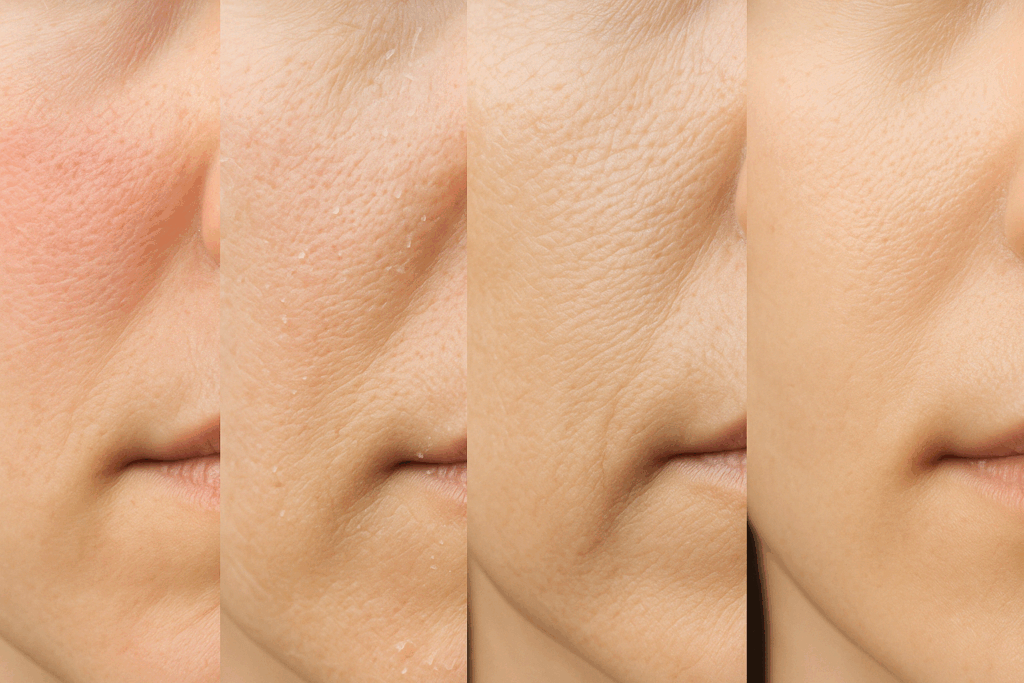
Safety Considerations and Side Effects
Despite its efficacy, retinol is not without potential side effects. The most commonly reported adverse reactions include dryness, flaking, redness, and increased sensitivity to sunlight. These effects are generally dose-dependent and can often be mitigated with proper skincare and application techniques.
Dermatologists recommend using a pea-sized amount of product, applying it to completely dry skin, and waiting several minutes after washing the face to reduce the likelihood of irritation. Following retinol with a hydrating moisturizer can also buffer its drying effects and restore the skin barrier. In cases of persistent irritation, temporarily reducing application frequency or switching to a gentler formulation may be necessary.
It is important to distinguish between normal retinization and allergic reactions. While mild discomfort is expected during the initial adjustment period, symptoms such as intense burning, swelling, or blistering may indicate a hypersensitivity reaction and warrant discontinuation. Patients with eczema, rosacea, or other inflammatory skin conditions should consult a dermatologist before starting retinol, as these conditions may predispose them to heightened sensitivity.
For pregnant or breastfeeding individuals, retinoid use should be avoided unless specifically advised by a medical professional. Although over-the-counter retinol is generally considered less potent than prescription retinoids, concerns about systemic absorption and potential teratogenicity persist. As such, alternative treatments may be explored during this life stage.
Integrating Retinol into a Broader Skincare Routine
The effectiveness of retinol for blackheads is maximized when it is integrated into a comprehensive skincare regimen. This includes supporting products that reinforce skin barrier function, enhance hydration, and maintain pH balance. Cleansers with low pH help preserve the skin’s acid mantle, while humectants like hyaluronic acid attract and retain moisture, mitigating the drying effects of retinol.
Exfoliation, while beneficial, must be approached with caution when using retinol. Physical scrubs or strong chemical exfoliants can exacerbate irritation and compromise the skin barrier. Instead, dermatologists often recommend gentle exfoliating agents, used sparingly and on alternating days to avoid compounding skin stress.
Sunscreen remains non-negotiable. Retinol-induced photosensitivity increases the risk of sunburn and long-term UV damage. A broad-spectrum SPF of 30 or higher, applied every morning and reapplied as needed, is essential for anyone using retinol. Not only does this prevent pigmentation issues, but it also preserves the integrity of the skin renewal process initiated by retinol.
Moreover, patients are encouraged to monitor their skin’s response and adjust their regimen accordingly. Seasonal changes, lifestyle factors, and hormonal fluctuations can all influence how the skin reacts to retinol. Maintaining a flexible, responsive approach—guided by dermatological expertise—ensures that the skin remains balanced, healthy, and receptive to treatment.
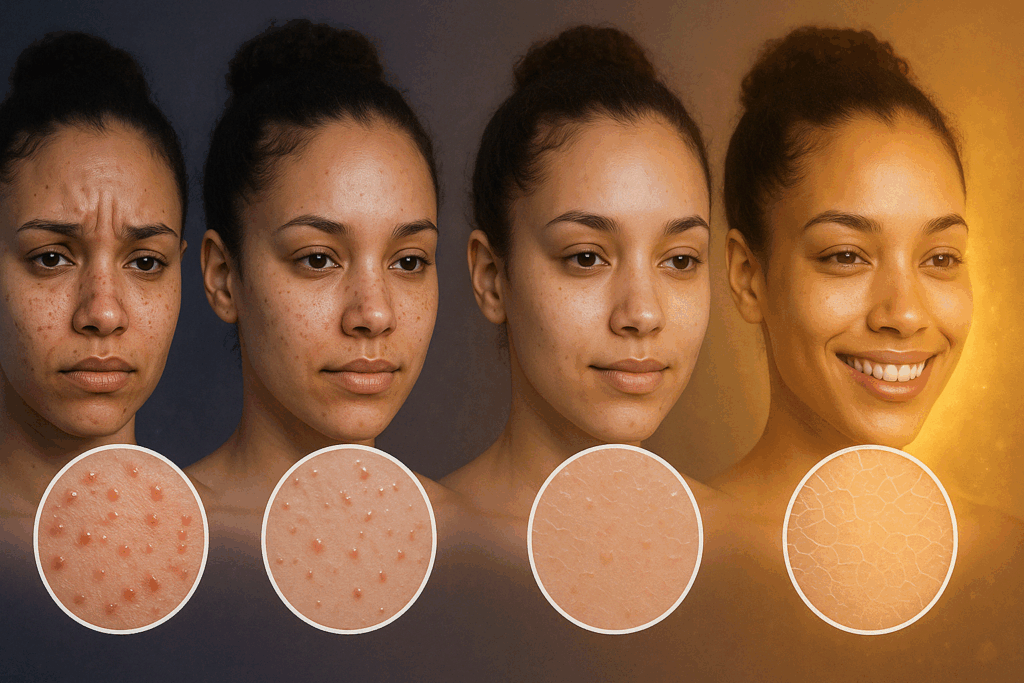
What to Expect When Starting Retinol for Blackheads
Understanding the timeline of retinol’s effects helps set realistic expectations and improves user satisfaction. In the first week, many users experience mild irritation, tightness, and flaking as the skin adjusts. This phase is often referred to as the initiation or retinization phase. Some individuals may also experience purging, wherein dormant acne lesions surface and resolve more rapidly due to increased cellular turnover.
By the second to fourth weeks, these symptoms typically begin to subside as the skin builds tolerance. At this point, users may begin to notice improvements in texture, reduced pore congestion, and a decrease in new blackhead formation. By eight to twelve weeks, consistent use often yields visible clarity, smoother skin, and a reduction in comedonal lesions.
It is essential to maintain patience and consistency during this period. Abrupt discontinuation or overuse can disrupt the treatment process and lead to setbacks. Dermatologists frequently remind patients that skin regeneration is a gradual process and that enduring results require ongoing commitment.
Emphasizing Professional Guidance in Retinol Use
While many over-the-counter products tout the benefits of retinol for blackheads, the importance of professional guidance cannot be overstated. Dermatologists possess the clinical insight needed to tailor treatment plans, adjust dosages, and troubleshoot side effects. This personalized approach often makes the difference between a frustrating experience and a successful outcome.
Consultation with a dermatologist allows for comprehensive assessment, including consideration of underlying medical conditions, concurrent medications, and lifestyle factors that may impact skin health. In cases of treatment resistance, dermatologists can escalate care to include higher-strength retinoids or adjunctive therapies such as chemical peels, laser treatments, or oral medications.
Moreover, dermatologists stay abreast of emerging research and innovations in skincare, ensuring that patients receive the most up-to-date and evidence-based recommendations. Their role extends beyond prescription—they serve as educators, advocates, and allies in the pursuit of healthy, clear skin.
Frequently Asked Questions: Retinol for Blackheads
1. Can retinol help prevent blackheads from coming back after treatment?
Yes, using retinol for blackheads consistently can help prevent their recurrence over time. What makes retinol particularly effective for long-term prevention is its ability to normalize keratinocyte function and regulate skin cell turnover. Unlike surface treatments that simply clear out pores temporarily, retinol addresses the root processes that lead to clogged follicles. When used consistently, it helps maintain cleaner, more resilient pores less prone to congestion. Therefore, when considering long-term skin maintenance, many dermatologists recommend retinol not just as a treatment for existing blackheads but as a preventive strategy.
2. How does retinol for blackheads compare to exfoliating acids like salicylic acid or glycolic acid?
While both exfoliating acids and retinol target blackheads, they do so in different ways. Salicylic acid is oil-soluble and penetrates into pores to dissolve debris, making it an excellent short-term solution for surface-level congestion. Retinol, on the other hand, works deeper within the skin by promoting regulated desquamation and reducing follicular plugging from the inside out. This makes retinol for blackheads a more comprehensive and enduring approach, particularly for individuals with persistent or hormonal congestion. Combining these ingredients thoughtfully can create a synergistic effect, but layering must be approached cautiously to avoid over-exfoliation and irritation.
3. Is there an optimal age to start using retinol for blackheads?
There is no strict age requirement, but many dermatologists recommend introducing retinol for blackheads in the late teens to early twenties, particularly for those with ongoing comedonal acne. At this stage, skin typically responds well to retinoids, and early intervention can prevent the progression to more inflammatory forms of acne. That said, individuals in their 30s and 40s also benefit significantly from retinol, as it simultaneously targets blackheads and early signs of aging. The key is to adjust the formulation and concentration based on age-related skin sensitivity and individual needs. Dermatological guidance is essential for ensuring safe and effective use across age groups.
4. Can natural or plant-based alternatives work as well as retinol for blackheads?
Several botanical extracts claim to mimic the effects of retinol, such as bakuchiol, rosehip oil, and rambutan leaf extract. While some preliminary research suggests these may offer mild improvements in skin texture, they generally lack the extensive clinical validation that supports retinol’s efficacy for blackheads. These alternatives might be suitable for individuals with ultra-sensitive skin who cannot tolerate traditional retinoids, but they tend to deliver more subtle and slower results. For those specifically targeting blackheads, especially persistent or clustered ones, retinol remains the gold standard. However, natural options may still serve as complementary elements in a broader, more holistic skincare routine.
5. What is the psychological impact of using retinol for blackheads in long-term skincare?
The consistent use of retinol for blackheads often goes beyond cosmetic improvement—it can have a meaningful psychological impact. Many individuals experience increased confidence, reduced anxiety related to their appearance, and improved social interactions as their skin clears. This is particularly important for adolescents and young adults, for whom acne and blackheads may contribute to self-esteem issues. Over time, users often report not just satisfaction with physical results but a strengthened sense of agency over their skin health. While retinol is not a psychological treatment, its visible effects often intersect positively with mental well-being.
6. How should retinol be used for blackheads on areas other than the face, like the back or chest?
While most discussions of retinol for blackheads focus on facial use, body areas like the back, chest, and even shoulders can also benefit from targeted application. These areas tend to have thicker skin and more sebaceous activity, so slightly stronger concentrations or prescription-strength formulations may be appropriate. However, irritation can still occur, particularly in friction-prone regions. It’s also important to follow with appropriate moisturizers and to avoid harsh body scrubs that could aggravate retinol-treated skin. Applying retinol to the body can be a valuable strategy for those dealing with blackhead-prone body acne, but it should be done under dermatological supervision for best results.
7. Does retinol help with blackheads that are caused by hormonal fluctuations?
Hormonal blackheads, often seen around the jawline and chin, respond well to consistent retinol use due to its sebostatic and keratinocyte-regulating properties. While retinol does not alter hormone levels, it counteracts the downstream skin effects of hormonal changes—particularly increased oil production and slower cellular turnover. For women with hormonal fluctuations related to menstrual cycles, perimenopause, or PCOS, retinol for blackheads can serve as a stabilizing agent in their routine. However, some cases may also benefit from adjunctive therapies like oral contraceptives or anti-androgen medications. In such instances, retinol remains an integral part of a multifaceted treatment strategy.
8. Are there emerging technologies or new formulations that improve how retinol treats blackheads?
Recent advances in retinoid delivery systems, such as encapsulated retinol, slow-release retinoids, and combination serums, are improving tolerability and penetration. Encapsulation technology, for instance, allows retinol to be delivered deeper into the skin with reduced irritation, making it ideal for first-time users or sensitive skin types. Additionally, new retinol derivatives like hydroxypinacolone retinoate are being explored for their potential to treat blackheads with fewer side effects. These innovations reflect an industry-wide effort to make retinol for blackheads more accessible, tolerable, and effective across different skin types. As research evolves, consumers can expect even more personalized and technologically advanced retinol options.
9. Can overuse or misuse of retinol worsen blackheads or other skin issues?
Absolutely. Overusing retinol for blackheads can disrupt the skin barrier, leading to increased sensitivity, redness, and in some cases, reactive breakouts that may be mistaken for acne or purging. When the skin is inflamed, its ability to properly shed cells and manage oil is impaired, creating the perfect environment for new blackheads to form. Misuse also includes combining retinol with incompatible ingredients like harsh exfoliants or alcohol-based toners, which can amplify irritation. The best outcomes come from consistent, measured use with proper buffering agents and sun protection. Following dermatologist-recommended protocols helps prevent setbacks and maximizes the long-term benefits of retinol.
10. What role does diet and lifestyle play in enhancing the effectiveness of retinol for blackheads?
While retinol works topically, its effectiveness can be supported by internal health choices. A diet rich in omega-3 fatty acids, antioxidants, and zinc can reduce inflammation and support overall skin repair. Staying well-hydrated and managing stress—both of which impact hormone levels—can also influence how the skin responds to retinol. Poor lifestyle habits, like smoking or excessive alcohol use, may counteract the benefits of retinol by impairing collagen synthesis and delaying healing. Integrating retinol for blackheads into a broader wellness approach ensures more consistent and comprehensive results. Dermatologists increasingly recognize that clear skin is the product of both internal and external care strategies.
Final Thoughts: Is Retinol the Right Solution for Your Blackheads?
For individuals grappling with persistent comedonal acne, the question “does retinol help with blackheads?” is met with a robust and affirmative body of evidence. From its deep follicular action to its role in regulating keratinization and sebum production, retinol addresses the root causes of blackhead formation in a way that few other ingredients can.
Yet, success with retinol depends on more than simply applying a product—it requires informed use, patience, and often the support of a skincare professional. When used consistently and correctly, retinol not only clears existing blackheads but also fosters healthier skin over time. It becomes not just a treatment, but a preventive strategy and a cornerstone of long-term skin maintenance.
As with any dermatological intervention, individual experiences may vary. Those with sensitive skin, complex acne patterns, or coexisting conditions may need tailored approaches. Nonetheless, the consensus among dermatologists is clear: retinol, when used judiciously, is a scientifically validated and highly effective tool for managing blackheads and improving overall skin health.
In the ever-evolving world of skincare, where trends come and go, retinol stands the test of time. Its continued relevance speaks not only to its biological efficacy but also to the enduring trust that dermatologists place in its use. For those seeking a reliable, expert-endorsed solution to blackheads, incorporating retinol into their skincare regimen may well be the turning point they’ve been looking for.
Was this article helpful? Don’t let it stop with you. Share it right now with someone who needs to see it—whether it’s a friend, a colleague, or your whole network. And if staying ahead on this topic matters to you, subscribe to this publication for the most up-to-date information. You’ll get the latest insights delivered straight to you—no searching, no missing out
Further Reading:
How Does Retinol Work? Facts, Side Effects, and More
How effective is retinol for treating acne?
Retinol: Cream, Serum, What It Is, Benefits, How To Use
Disclaimer
The information contained in this article is provided for general informational purposes only and is not intended to serve as medical, legal, or professional advice. While Health11News strives to present accurate, up-to-date, and reliable content, no warranty or guarantee, expressed or implied, is made regarding the completeness, accuracy, or adequacy of the information provided. Readers are strongly advised to seek the guidance of a qualified healthcare provider or other relevant professionals before acting on any information contained in this article. Health11News, its authors, editors, and contributors expressly disclaim any liability for any damages, losses, or consequences arising directly or indirectly from the use, interpretation, or reliance on any information presented herein. The views and opinions expressed in this article are those of the author(s) and do not necessarily reflect the official policies or positions of Health11News.